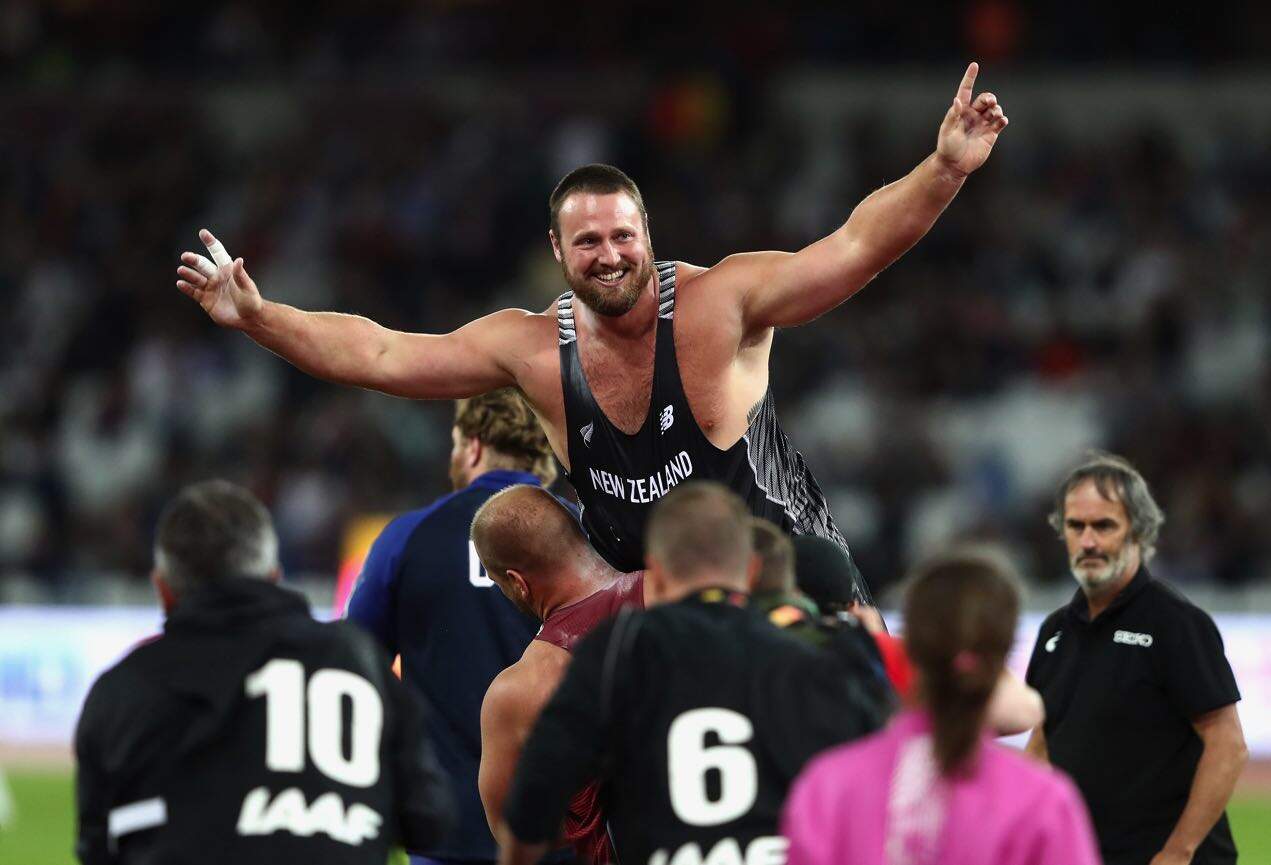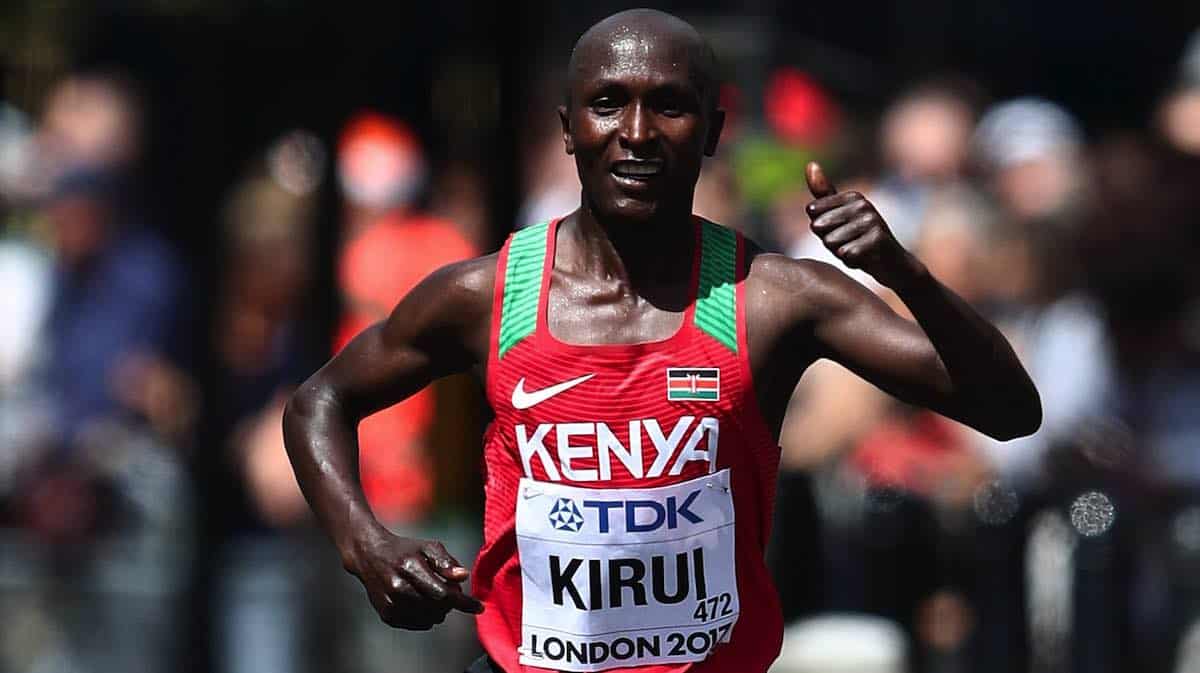Len Johnson Reporting from the World Champs, London – Runner’s Tribe
The British are proud of their ability to deliver an ‘event’. London 2012 was the best Olympics ever. The pageantry of the Changing of the Guard. And so forth, and so on – and on, and on.
To a large extent, this is true. When you’re standing in one of the interminable queues snaking their way into or out of the Olympic Park precinct, you will certainly hear more than the odd whinge, but even if you ask said whinger directly what he or she thinks of the championships, they will like as not reply along the lines: “I think they’re doing it brilliantly.”
But there have been some minor irritations in the delivery of the championships. The booing of Justin Gatlin aside, crowd control and flow has been somewhat less than Olympian while signage seems to have largely disappeared. Access routes into and out of the precinct and the stadium itself change capriciously in a manner more reminiscent of Moscow 2013 than London 2012. There are enough marshalls directing the traffic flow, but the tennis umpire stands they should be standing on for visibility are invisible. Commandeered for Wimbledon, perhaps.

These are irritations, fortunately, rather than major problems. But enough irritations can add up to a very unpleasant itch.
So what a relief to travel into the city on Sunday for the marathons. The annual London marathon is one of the best organised races in the world, and this organisation carried into the world championship marathons. London does streets, it would seem, better than almost anywhere else in the world. It was an accessible course, starting and finishing on Tower Bridge, utilising the Victoria Embankment and a star shaped loop around St Paul’s.
For spectators, there were numerous, clearly marked, crossing points, which along with the loop of approximately 10km, offered the chance to see the runners several times, all the time moving at walking pace (the spectator, that is, not the runner).
And the two races were crackers. As in Beijing two years ago, all the medals in the women’s race were in contest every step of the 42,195 metres. Our last glimpse of the runners was just beyond 40km as they left the loop to head for the finish. Two-time world champion and this year’s Boston winner Edna Kiplagat had a mere two-second break on Rose Chelimo. Given her record, though, you would have put the house on her.
And you would have been looking for alternate accommodation. Even Chelimo thought she was gone, but she fought back to get on terms and race to a seven second victory in 2:27:11. American Amy Cragg also all but caught Kiplagat on the line. Both were given the same time – 2:27:18 – but Kiplagat got the silver, Cragg the bronze. After a first half of 1:14:52, the winner rattled home in 1:12:19.

Prominent all the way, and actually leading the pack at 35k, was Jess Trengove. She finished ninth, best by an Australian woman in a world championships, and joined Mona and Deek – two handy names – as a top-10 finisher. Well done her.

Sinead Diver was 20th and Milly Clark 24th in a solid team performance.
The men’s race some three hours earlier was also one of constant acceleration. After a cautious start, half-way was reached in 1:05:28. The pace increase began at 20k. Twenty to 25 took 14:28; 25 to 30 went by in 14:45 and 30-35 in 14:43. After a slight deceleration (15:25 to 40k), the winner came home in 2:08:27. The second half of the race went down in 1:02:59.
Pushing the pace most of this time was Ethiopia’s Tamirat Tola and Geoffrey Kirui of Kenya who, like Kiplagat, was a Boston winner this year. Tola seemed to have the edge until the pace and the heat of a clear, sunny middle of the day, got to him. He took three tries to grab his drink bottle at one of the aid stations, a sure sign that he was losing it.
Kirui pushed on alone to win in 2:08:27, restoring a Kenyan domination that had been eclipsed in Beijing two years ago by the inexplicably poor performances of Dennis Kimetto and Wilson Kipsang. Alphonce Simbu of Tanzania almost caught Tola at the finish, falling just two second short in 2:09:51. Daniel Wanjiru, who so impressively defeated Kenenisa Bekele in London earlier in the year, finished eighth, Yuki Kawauchi, ninth.

Jack Colreavy finished 45th of 71 finishers (100 started) and Brad Milosevic 60th. Josh Harris was forced out by injury in the second half of the race.
On the London streets, they do do things ‘brilliantly’.
Finally, a word on what happened at the stadium. He may be a Kiwi, but Tom Walsh is a frequent visitor to Australia for training and competition. In the Anzac spirit, we must acclaim his stirring victory in the shot put. Leading throughout the competition, Walsh put the shot out to 22.03 metres on his final throw to ice the cake nicely. And he gave the best on-ground interview heard at the championships (not a big field of contenders, unfortunately).
Well done him, too.

End
